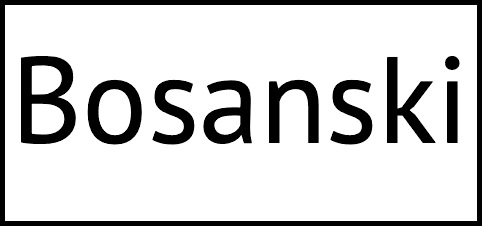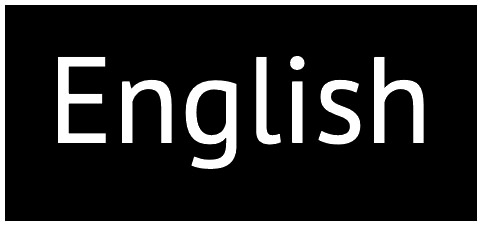


Design by Adis Alić
ETHICS POLICY
"Acta Catallactics, Journal of Economic and General Social Issues" is an international scientific journal published by Multi and International Business-Information Academy Tuzla. All content is subject to a double anonymous peer review process. publishing and maintaining scientific integrity.
This statement stems from the fact that Acta Catallactics, a journal for economic and general social affairs, strongly supports academic honesty and professional integrity. For this reason, high ethical standards are expected of all participants in the publishing process: authors, reviewers and publishers. The journal seeks to connect the research community in the fields of economics and social sciences.
The journal follows the legal provisions of Bosnia and Herzegovina with regard to copyright and publishing rights, while respecting the open access, licensing and archiving policies outlined above, as well as generally accepted ethical and formal rules on academic writing. This statement is based on the main principles of the Committee on Publishing Ethics (COPE) set out in the Guidelines on good publishing practice. The ethical standards governing the journal Acta Catallactics, the journal for economic and general social affairs, are set out below.
Authorship
The authors are all those scientists who have made significant contributions to the design of the paper. Papers should include a full list of authors and their institutions and / or enterprises in which they are employed. Authorship should be limited to those authors who have made a significant contribution to the work and whose name is listed among the authors of the work, while other contributors and contributors are cited as such. The contributing author is responsible for listing all authors and coordinating between the author and the journal.
The authors are responsible for respecting the copyright of all involved stakeholders. This includes appropriately citing the author and quoting the references used, and authorizing the use of photographs, charts, views, tables, or any other data set. Authors are required to collaborate in the review process to achieve the best possible outcome.
At the end of the paper, the authors may acknowledge other persons or organizations that have contributed to the research.
Authors must clearly indicate whether financial support is provided at any stage of the writing process. Possible conflicts of interest, financial or other conflicts that may be interpreted as influencing research outcomes or analysis should be clearly stated.
Authors are entitled to moral and intellectual rights with respect to their manuscripts. Authors retain copyright over their manuscripts.
Business Excellence encourages authors to be honest and honest in presenting their research findings. Forging, falsifying or selectively presenting information with the intention of misleading reviewers and readers is a highly unethical practice. Survey results should be stored for a reasonable amount of time to allow for their analysis and review on request.
Plagiarism
Authors should carefully use the work of other authors in their research and cite publications that have influenced the direction and course of their research. Reproducing text from other works without correctly citing sources, ie plagiarism is not acceptable behavior. Authors should avoid the practice of self-plagiarism, that is, producing many papers with almost the same content.
Policy of the uniqueness of works
The Journal of Business Excellence accepts previously unpublished papers. Submitting the same work at one time to more than one journal is not an acceptable way of behaving and will not be tolerated.
Ethics and impartiality of the review process
Submitted papers are subject to double review. Acta Catallactics, the journal for economic and general social issues, seeks to ensure an ethical and high quality review process. Reviewers do not know who the authors of the papers they are reviewing are. If reviewers become aware of authors when reviewing a paper, they must notify the Editorial Board and refuse to evaluate such manuscripts. Also, reviewers should avoid any other conflicts of interest regarding the work they evaluate. Conflicts of interest may arise from collaboration, financial, institutional, personal or other relationships with any company, institution or person related to the work in the review process. During the review process, the reviewers should be objective, honest and professional. In their comments and opinions, reviewers must avoid personal prejudice. In all circumstances, reviewers must respect the confidentiality of the review process. Reviewers should explain and adequately support their scientific judgment. The final opinion, together with comments for the author, is submitted exclusively to the editor-in-chief, who will arrange for further distribution to the authors.
Withdrawals, Corrections and Ethical Offenses
If there are errors in published works, all authors must immediately notify the editorial board to ensure prompt withdrawal or correction. Withdrawal of work will be published if there is clear evidence of a key work error (for example: experimental errors, a lot of miscalculations, fabricated data, work previously published elsewhere without proper citation, plagiarism identified, etc.). Errata will be published if there are minor errors in the paper (eg data in one section of the paper is incorrect, there is an unintentional error in the citation, a spelling error in the author's list, etc.).
If ethical violations are identified, the Editor-in-Chief will seek advice from the reviewers of the work in question and the editorial board for further action. If there is strong evidence, this issue will be addressed by appropriate corrections in the printed and electronic form of the journal; by rejecting the future works of the authors of the disputed part-time work, and by contacting the editors in other journals, especially those in which the work of the directly affected authors has been published. However, legal action regarding the authors of the disputed works is in the hands of those who employ researchers.
Editor’s Role in Publishing Decisions
The editors are responsible for the final decision on the publication and the timing of the publication of the submitted papers. The editors are guided by the editorial policy of the magazine and the restrictions of the law regarding defamation, copyright infringement and plagiarism. Editors are guided by reviews of papers when deciding to publish. The editorial board should ensure equal and objective treatment of authors in the review process, which should not be influenced by the author's race, gender, sexual orientation, religion, ethnic origin, citizenship or author's political orientation. The editorial board must ensure a confidential and objective review process without disclosing any information about the attached manuscript to anyone other than the relevant authors, reviewers, potential reviewers, and, as appropriate, other editorial staff members.
Additional information
If you have any concerns about ethical issues, please consult the European Code of Ethics for Research Integrity at: http://www.esf.org/coordinating-research/mo-fora/research-integrity.html.